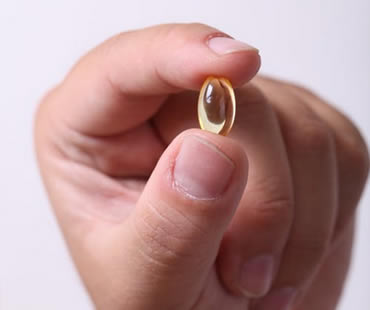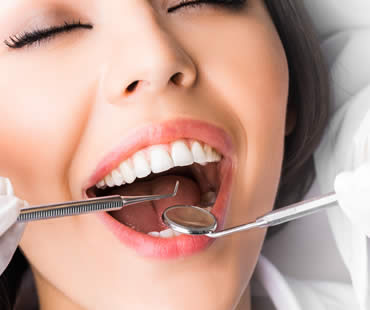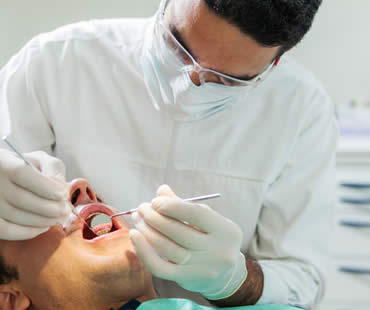
by Dr. Adkins | Sep 18, 2020 | Blog, Dental Topics 1, General Dentistry
As we age, our teeth and gums change. Proper care of your teeth as well as eating a good diet can keep your smile beautiful and strong. Certain vitamins and minerals also help promote optimal oral health.
As we age, our teeth and gums change. Proper care of your teeth as well as eating a good diet can keep your smile beautiful and strong. Certain vitamins and minerals also help promote optimal oral health.
Vitamin A
Besides aiding with vision, Vitamin A also helps with the development of healthy teeth and gums. As well, Vitamin A contains beta-carotene, which has antioxidant properties. These antioxidants assist in getting rid of free radicals, chemicals that speed up decay in the body.
Vitamin C
Also called ascorbic acid, Vitamin C assists with the absorption of iron, maintains healthy connective tissues, and promotes strong teeth and gum tissue. Because Vitamin C is water-soluble, it is washed out of the body once it has what it needs, people should take in Vitamin C every day.
Vitamin D
Created after exposure to sunlight, Vitamin D encourages calcium absorption as well as helping keep the right levels of calcium and phosphorous in the blood stream. Children need to get enough Vitamin D so that they will develop healthy teeth and bones, so it is often added to milk.
Calcium
No matter your age, every person needs to take in enough calcium because this mineral is crucial in the development and maintenance of teeth and bones. In fact, your jaw bone forms the foundation that houses your teeth.
Getting What You Need
Eating a balanced diet will ensure that your body has the vitamins and minerals needed to keep your smile vibrant for a lifetime. Dairy products like yogurt and cheese as well as vegetables such as broccoli and peas are high in calcium. Have lots of egg yolks, fatty fish, and fortified dairy products when you need Vitamin D. Citrus fruits, melons, berries, and tomatoes offer plenty of Vitamin C, and you can find Vitamin A in dark green or yellow fruits and vegetables, eggs, or low-fat dairy products.

by Dr. Adkins | May 22, 2020 | Blog, Dental Topics 2, General Dentistry
Most of us know we should visit our general dentist every six months for exams and cleanings to ensure optimal oral health, but it seems we find many reasons to avoid those visits. Busy schedules or fear of dental treatments often mean people skip critical routine oral care. However, there are several reasons why you should make regular appointments with your general dentist a priority.
First, routine cleanings by your general dentist will give you a brighter, healthier smile. While brushing and flossing at home are important, it is impossible to remove all of the plaque that accumulates over time. Left untreated, plaque causes decay that leads to cavities and gum disease. Professional cleanings by your general dentist removes plaque and stains, leaving your breath fresher and your smile whiter.
Second, regular examinations allow your dentist to identify potential problems before they become severe. Cavities and gum disease caught early are much simpler to treat, preventing the need for procedures like root canal therapy, crowns, or even tooth extractions. Seeing your general dentist routinely will keep these types of problems in check, and save you from more complex and invasive procedures later.
Finally and most importantly, regular checkups with your general dentist can have a direct impact on your overall health. Poor oral health affects your entire body. A decayed tooth can cause a bacterial infection that spreads to other areas of your body. A general dentist checks your mouth for signs of disease, decay, and even certain cancers.
Stop making excuses and find a qualified general dentist with hours and an office location that is convenient to you. Consult with the staff about your dental fears and learn what types of services are offered to make your visit less stressful. If you value both your beautiful smile and your excellent health, be sure to keep regular visits to the dentist on your calendar.
We treat patients from McDonough and the surrounding area

by Dr. Adkins | Apr 24, 2020 | Blog, Dental Topics 2, General Dentistry
It’s easy to put off a trip to the dentist if you’re not experiencing any pain or noticeable issues. Maybe it’s inconvenient in your busy schedule, maybe you don’t want to spend the money, or maybe you experience anxiety about dental visits. None of these are good enough reasons to forego proper dental care so that you ensure a healthy mouth and attractive smile.
Having regular checkups with your general dentist is important for a variety of reasons. Probably the most beneficial reason is to catch problems early, before they have time to become serious and negatively impact your oral health. Cavities and gum disease are both examples of issues that can wreak havoc in your mouth if left untreated, but if handled quickly they may disappear with as little as a fluoride treatment or change in your hygiene routine. Avoiding treatments like fillings, crowns, or root canals – not to mention the associated costs to your wallet and your schedule – are great reasons to see your dentist every six months!
Another benefit of regular checkups is a brighter, more beautiful smile. Even the best dental hygiene at home can’t reach every bit of plaque or tartar that accumulates on your teeth. Professional cleanings eliminate buildup to give you a more appealing smile, as well as removing harmful and stinky bacteria from your mouth.
Your overall health also reaps the rewards of consistent dental care. Oral problems can impact your general health through things like introducing dangerous bacteria into your body that can spread and cause various health risks. Also, your dentist may notice signs of health issues you might not realize, such as cancers or diseases or nutritional deficiencies.
Make your smile a priority and visit your general dentist regularly. Don’t let excuses get in the way of receiving the rewards dentistry has to offer.
We treat patients from McDonough and the surrounding area

by Dr. Adkins | Mar 13, 2020 | Blog, Dental Topics 1, General Dentistry
There are few things more irritating than having a painful, swollen sore in your mouth. It bothers you while eating, talking, and even just sitting around. There are a number of types of mouth sores with different causes. Some are infections from bacteria, viruses, or fungus. Or they can be a result of an ill-fitting denture, broken tooth or filling, or loose orthodontic wire. Mouth sores can also be a symptom of a medical condition. Here are some details about common mouth sores.
Canker sore
These small sores occur inside your mouth, and are white or gray with a red outline. They aren’t contagious, but are recurring and can happen one-at-a-time or several at once. Experts believe that lowered immune systems, bacteria, or viruses are risk factors. Canker sores often heal by themselves in about a week, and topical anesthetics or antibacterial mouthwashes may provide relief.
Cold sore
Also called fever blisters, these sores occur outside of your mouth around your lips, nose, or chin. These blisters filled with fluid are caused by the herpes simplex virus type 1, and are extremely contagious. Once you have been infected with the herpes virus, it remains in your body and occasionally flares up. Cold sores usually heal in about a week on their own. Topical anesthetics may help, and your dentist might prescribe antiviral medications to reduce outbreaks.
Candidiasis
Also called oral thrush, candidiasis is a result of the yeast Candida albicans reproducing in large quantities. It usually happens to those with weakened immune systems, and is common with people wearing dentures or with dry mouth syndrome. Candidiasis is also linked to taking antibiotics. Controlling candidiasis is done by preventing or controlling the cause of the outbreak. Ask your dentist for advice.
Leukoplakia
Common with tobacco users, leukoplakia are thick white patches on the inside of your cheeks, gums, or tongue. In addition to tobacco use, they can also be caused by ill-fitting dentures or continual chewing on the inside of your cheek. Leukoplakia is linked with oral cancer, so your dentist may advise a biopsy if the patch looks suspicious.
Contact our dental office in McDonough to schedule a dental checkup.

by Dr. Adkins | Mar 6, 2020 | Blog, Dental Topics 2, General Dentistry
If you have severely damaged, diseased or injured teeth, your dentist may recommend crown and bridge treatment. A crown is a dental restoration that fully covers a tooth and becomes the tooth’s new outer surface. A bridge is also a dental restoration that is anchored to natural teeth. However, a bridge replaces and fills the gap left by multiple missing teeth. Both crowns and bridges are made from a variety of materials and can be matched to the color of your natural teeth. Unlike removable dental devices like dentures, crowns and bridges are permanently affixed to existing teeth or implants allowing them to look and function similarly to natural teeth.
In addition to restored function and appearance, crowns and bridges offer a host of additional benefits including:
- Dental crowns protect and strengthen the natural tooth, helping you to avoid extraction.
- Crowns are the final step in root canal treatment, protecting the tooth from bacteria that could re-infect the treated tooth.
- Crowns and bridges restore missing teeth and support the remaining teeth.
- Your natural bite is restored and maintained with crown and bridge treatment.
- Placement of crowns and bridges improve your speech, smile and chewing function.
- Adjacent teeth are prevented from shifting and tilting with crown and bridge treatment.
- Crowns and bridges are long-lasting, predictable and durable.
- Placement of crowns and bridges is quick and can usually be completed in as little as two appointments.
- Alternatives to crown and bridgework, like dental implants, are usually more invasive requiring surgery and possibly bone grafting to place the implant.
Consult with your dentist to find out more about the advantages of crowns and bridges and how they can help to restore your healthy smile.
If you need a dentist in McDonough contact us today

by Dr. Adkins | Jan 24, 2020 | Blog, Dental Topics 1, General Dentistry
Chances are that you want to have a smile full of sparkly, white, straight teeth. You must not forget about the goal of having a healthy smile too. If you don’t pay proper attention to your mouth, there are a number of diseases and problems that can arise. Poor hygiene causes many problems, from minor to severe, so it’s smarter to make sure your teeth stay in good condition. Follow these suggestions for a healthy smile.
Focus on daily care
Your mouth requires care every single day. You simply can’t perform hygiene tasks once every few days or just when it’s convenient, and expect to have a healthy, attractive smile. Follow your dentist’s instructions on properly brushing your teeth at least twice daily, and flossing every day too. In fact, flossing is just as important to your oral health as brushing! By performing both of these daily tasks, you’ll be able to remove debris and germs and improve your smile.
Choose your products wisely
Select toothpaste that meets your goals. It should always contain fluoride, but you can also choose brands with objectives like tartar protection, improving bad breath, and teeth whitening. You may also want to choose a mouthwash that you can use to quickly clean your mouth, or supplement your other oral care products.
Don’t ignore your dentist
Even if you’re properly caring for your mouth at home, it’s important to continue seeing your dentist regularly. Experts suggest having dental checkups every six months, so your dentist can look for problems like gum disease, cavities, and infections. It’s smart to get any issues treated right away, before things worsen and lead to more costly, painful procedures later.
Schedule your appointment today at our McDonough dental office.








 770-957-5214
770-957-5214  E-Mail Us
E-Mail Us 
